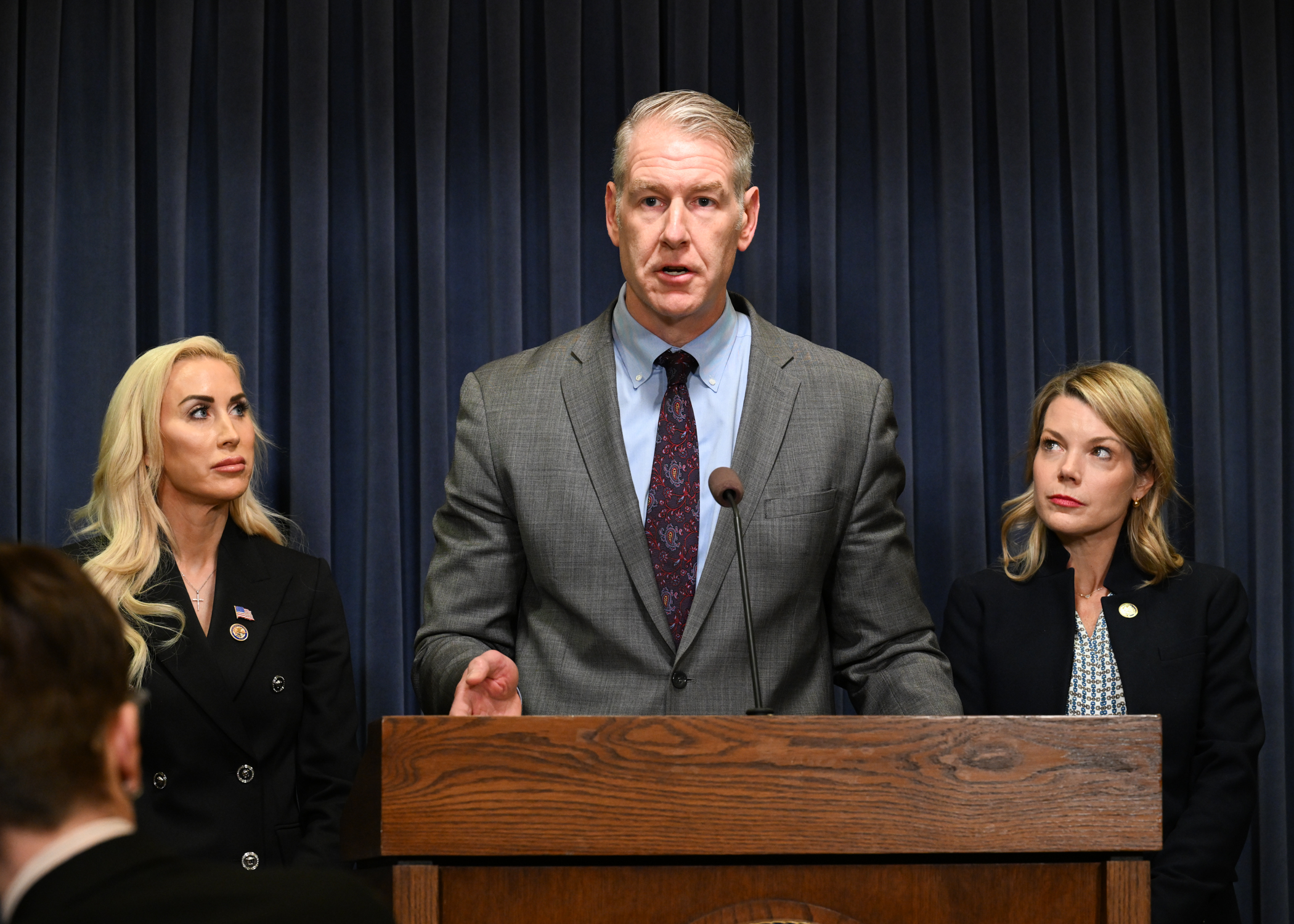Illinois Senate Republican Leader John Curran (41st–Downers Grove), alongside State Senator Erica Harriss (56th–Glen Carbon) and State Senator Darby Hills (26th–Barrington Hills), today unveiled their legislative package to make childcare more affordable for Illinois families and businesses.
“Investing in childcare is investing in Illinois families and businesses,” said Curran. “Our legislative package is a holistic approach that empowers families, businesses and the state to work together to provide both immediate relief and long-term structural improvements to childcare in Illinois.”
According to Capitol News Illinois, the state has lost nearly 4,300 licensed childcare providers—approximately 33 percent—over the past decade. In response, Curran has filed Senate Bill 1120 to help reduce staffing shortages and red tape for providers in childcare deserts and provide financial relief to working families struggling to afford the high cost of care.
The legislation establishes the Child Care Providers Working in Child Care Deserts Student Loan Forgiveness Act, creating a loan forgiveness program for childcare providers working in underserved areas. The program would offer up to $4,000 per year for undergraduate degrees and $8,000 per year for graduate degrees, for up to two years.
Additional provisions in the bill include:
•Extending daycare license renewals from three to four years;
•Requiring free online training for childcare providers by July 1, 2026; and
•Raising income eligibility for childcare assistance to 250% of the federal poverty level starting in fiscal year 2026.
Nearly 60 percent of Illinoisans live in a childcare desert, and that percentage rises to 70 percent in rural areas, where working families are often forced to travel long distances for care.
Senate Bill 1121, co-sponsored by Harriss, would modernize licensing rules specifically for childcare deserts. The legislation allows the state to reduce unnecessary red tape, streamline the approval process, and adjust licensing requirements to better reflect local need and workforce conditions.
“Just like roads and bridges, childcare is infrastructure–it keeps our communities connected, our economy moving, and our families supported,” said Sen. Harriss. “It’s time we treat it that way.”
Hills introduced Senate Bill 2382, which would create an income tax credit for taxpayers who make qualified donations of real property to employers for the purpose of onsite childcare facilities. The tax credit would equal the fair market value of the donated property, as determined by the Illinois Department of Revenue.
“This doesn’t just address a regional issue it’s a statewide crisis affecting families of every income level and background,” said Hills. “Too many parents—especially moms—are being forced to choose between their careers and their kids.”
Hills emphasized that nearly 3.9 million suburban Illinois residents currently live in a childcare desert.
She also filed Senate Bill 2277, which would increase the income tax credit for businesses that provide childcare services to their employees—offering an additional incentive for employers to invest in this essential support for working families.
A childcare desert is defined as an area with a significant shortage of licensed childcare availability. Specifically, it refers to a census tract with more than 50 children under age five and either no childcare providers or so few that three or more children compete for every available licensed childcare slot.

Comments are closed